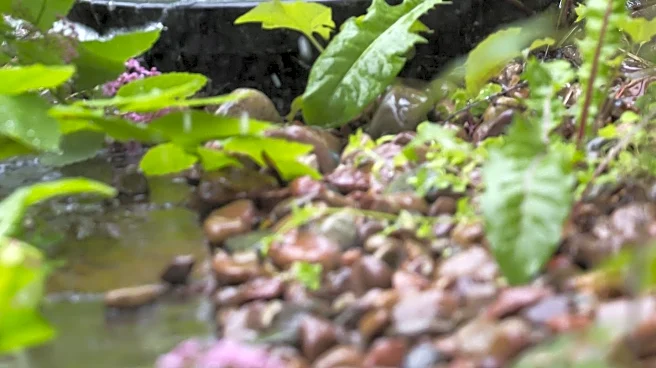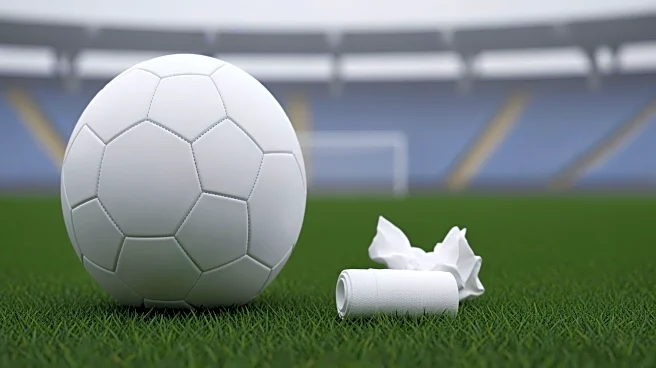What is the story about?
What's Happening?
As the UK experiences wetter weather, households are being advised to use washing-up liquid as a cost-effective method to unblock drains. Chris Houghton, a home expert at HomeServe, explains that rainwater often carries leaves, mud, and debris into outdoor drains, causing blockages. Pouring washing-up liquid followed by hot water can help break down greasy deposits and loosen trapped debris, facilitating better drainage. Olivia Young, a cleaning expert at Astonish, notes that washing-up liquid is formulated to cut through grease, helping prevent fats from settling in pipes. However, experts caution that this method is not foolproof, especially for severe blockages, and recommend proper disposal of fats and oils to prevent drain issues.
Why It's Important?
The advice to use washing-up liquid for drain blockages is significant as it offers a simple and affordable solution for households facing drainage issues during wetter months. This method can prevent minor blockages from escalating into more serious plumbing problems, potentially saving homeowners from costly repairs. Additionally, the emphasis on proper disposal of fats and oils highlights an important environmental consideration, as improper disposal can lead to significant plumbing issues and environmental harm. By adopting these practices, households can contribute to better waste management and reduce the risk of plumbing emergencies.
What's Next?
Households are encouraged to adopt the washing-up liquid method for minor blockages and to ensure proper disposal of fats and oils to prevent future issues. For severe blockages, consulting a professional is recommended. As the weather continues to worsen, maintaining clear outdoor drains by removing debris can further prevent blockages. Local recycling centers may offer options for disposing of larger quantities of cooking oil, providing an environmentally friendly solution for waste management.
Beyond the Headlines
The advice to use washing-up liquid for drain blockages also touches on broader environmental and waste management issues. Proper disposal of fats and oils not only prevents plumbing problems but also reduces environmental impact. This highlights the importance of sustainable practices in everyday household management, encouraging individuals to consider the environmental consequences of their actions. Additionally, the advice underscores the role of simple, everyday products in addressing common household challenges, promoting resourcefulness and practical problem-solving.















